VAT Voluntary Disclosure in UAE: Correcting Errors Before the FTA Finds Them
Even the most diligent businesses operating in the bustling landscape of Dubai can inadvertently make mistakes in their UAE VAT returns.
Perhaps a miscategorized expense, an overlooked sale, or a subtle misinterpretation of the UAE VAT regulations. But what happens when you discover such an error – especially before the FTA finds them?
The uneasy truth is, undisclosed UAE VAT errors are not benign; they carry the substantial risk of attracting significant FTA penalties during a future VAT audit in UAE.
This comprehensive guide on VAT Voluntary Disclosure in UAE will walk you through the essential process, illuminate the critical timelines, and demonstrate precisely how taking proactive steps can save your business from substantial fines, protect your reputation, and maintain impeccable VAT compliance in Dubai.
Learn how to correct VAT return UAE mistakes the right way.
What is VAT Voluntary Disclosure in UAE?
VAT Voluntary Disclosure in UAE (VD) is not merely a formality; it’s a critical compliance mechanism provided by the Federal Tax Authority (FTA). Submitted via Form 211 on the EmaraTax portal, it allows taxable persons to self-correct errors, omissions, or inaccuracies in previously submitted VAT returns, tax assessments, or refund applications.
The core purpose of this tool is twofold: to encourage self-correction, thereby fostering a culture of VAT compliance in Dubai, and crucially, to significantly reduce penalties for the taxpayer. The FTA favors proactive rectification over reactive discovery.
Understanding when it’s mandatory is vital. If an error results in an underpaid tax or an over-claimed refund of AED 10,000 or more, it must be disclosed via VD within 20 business days from the date you become aware of it.
For errors less than AED 10,000, while a VD is an option, the correction can often be made in the subsequent VAT return, provided the necessary conditions are met. This distinction is key to navigating FTA VAT errors efficiently.
UAE VAT Penalties for Uncorrected Errors
Consider this a pivotal choice point for your Dubai business. The difference in financial consequences between proactive disclosure and FTA discovery is stark.
The “Stick” – What Happens If the FTA Finds It First?
Should the FTA uncover your UAE VAT errors during a VAT audit in UAE, the penalties are severe and uncompromising. Expect a 50% penalty on the undeclared or underpaid tax amount, compounded by an additional 4% monthly penalty on that unpaid tax. This punitive approach underscores the FTA’s stance on non-compliance and serves as a major motivator for timely VAT Voluntary Disclosure in UAE.
The “Carrot” – Drastically Reduced Penalties with Voluntary Disclosure: This is where VAT Voluntary Disclosure in UAE becomes your strategic advantage, designed to reduce VAT penalties Dubai businesses might face:
- Fixed Penalties (for VD Form 211 submission): A fixed administrative penalty of AED 3,000 for the first submission of a Voluntary Disclosure, increasing to AED 5,000 for repeated submissions. These are minimal compared to penalties for undeclared tax.
- Percentage Penalties (on underpaid tax): This is the key benefit – the percentage of the undeclared tax applied as a penalty varies significantly based on when you disclose:
- Proactive Disclosure (Before FTA Notification/Audit): Only 5% of the undeclared tax. This is a dramatic reduction, showcasing the clear benefits of VAT Voluntary Disclosure UAE.
- After FTA Notification (Before Audit Starts): If you file the VD after receiving an FTA notification but before an official audit commences, the penalty rises to 30%.
- During FTA Audit: If the error is disclosed during an ongoing VAT audit in UAE, the penalty escalates further to 50%.
- Late Payment Penalties: Beyond the error-specific penalties, there are additional charges for delayed payment of the newly declared tax: 2% immediately, an additional 4% after 7 days, and then 1% daily (capped at 300%).
The drastic difference in penalties unequivocally underscores the immense financial benefit and strategic imperative of proactive VAT Voluntary Disclosure in UAE.
Types of VAT Errors That Require Voluntary Disclosure
Understanding which FTA VAT errors warrant a Voluntary Disclosure is crucial for accurate VAT compliance in Dubai. Common categories include:
- Understated Output Tax: This occurs if you’ve incorrectly classified standard-rated sales as zero-rated or exempt supplies, or simply failed to record sales.
- Overstated Input Tax: Claiming input VAT on expenses that are disallowed, or for which you lack proper tax invoices, can lead to this error. Incorrect documentation or claiming VAT on non-business expenses also falls here.
- Incorrect Emirate Reporting: Even if the overall tax amount is correct, misreporting the origin or destination of supplies by Emirate can necessitate a disclosure to correct VAT return UAE data.
- Errors in Tax Refund Applications: If you’ve overstated the refundable amount of VAT.
- Incorrect Application of Reverse Charge Mechanism: Mistakes in applying the reverse charge for imported services or goods.
- Unrecorded Taxable Supplies/Imports: Failing to account for certain supplies or imports that are subject to VAT.
It’s important to emphasize that even errors that don’t immediately impact the payable tax amount can still require disclosure if they are material (exceeding the AED 10,000 threshold), reflecting the broad scope of VAT reporting mistakes.
The Step-by-Step Process of Filing a VAT Voluntary Disclosure in UAE
Navigating the UAE VAT voluntary disclosure process requires precision. Here’s a clear roadmap:
- Identify the Error: This is often the first, and most crucial, step. It involves a thorough review of your financial records, internal audit procedures, and meticulous reconciliations to pinpoint any discrepancies.
- Quantify the Impact: Once identified, accurately determine the exact financial impact of the error – whether it’s an underpayment of tax or an over-claimed refund.
- Prepare Supporting Documentation: Gather all relevant documents that substantiate the error and its correction. This includes specific invoices, contracts, bank statements, ledgers, and a detailed explanation letter outlining the nature of the error, when it occurred, and how it was rectified.
- Access FTA Portal: Log in securely to your EmaraTax portal account. This is the official gateway for all FTA submissions.
- Complete Form 211 (Voluntary Disclosure Form): Navigate to the Voluntary Disclosure section and accurately complete Form 211. You will need to enter both the original figures as submitted and the corrected figures. Provide a clear, concise reason for the error.
- Submit & Pay: Once the form is complete and reviewed, submit it through the portal. Crucially, ensure prompt payment of any additional VAT due and any applicable fixed penalties to the FTA.
- Maintain Records: Always retain comprehensive records of your Voluntary Disclosure submission, including the FTA’s acknowledgement, payment receipts, and all supporting documents. These are vital for any future reference or VAT audit in UAE
This structured approach ensures compliance and streamlines the how to file VAT voluntary disclosure journey.
When to File: Critical Timelines for VAT Voluntary Disclosure
Timeliness is paramount when it comes to VAT Voluntary Disclosure in UAE to minimize UAE VAT penalties.
- “Awareness” is Key: For errors exceeding AED 10,000 (whether underpaid tax or over-claimed refund), you must file the VD within 20 business days from the date your business “becomes aware” of the error. This is a critical deadline to avoid higher penalties.
- Discovery in Next Return: For minor errors, specifically those resulting in an impact of less than AED 10,000, you generally have the option to correct them in your subsequent VAT return. However, if there is no subsequent return, or if you prefer a formal correction, a VD within 20 business days of awareness is still required.
- Overall Time Limit: There’s a general 5-year limit for the FTA to conduct a tax audit from the end of the relevant tax period. Therefore, it’s generally advisable to correct errors within this timeframe.
Highlighting the urgency here is essential. The sooner you identify and disclose an error, the better your position to reduce VAT penalties Dubai businesses might face. Understanding the VAT voluntary disclosure deadline is non
Why Partner with a VAT Consultant in Dubai for Voluntary Disclosure?
Navigating the intricacies of VAT Voluntary Disclosure in UAE can be complex, particularly when dealing with substantial errors or multiple discrepancies. Partnering with a specialized VAT consultant in Dubai offers invaluable support:
- Expert Navigation of Complexity: The process, especially the calculation of penalties and their interaction with the 5-year rule, demands expert knowledge that your internal team might lack.
- Ensuring Accuracy: A UAE VAT consultant voluntary disclosure specialist will ensure all errors are identified and corrected accurately the first time, preventing future scrutiny.
- Minimizing Penalties: Their experience enables them to advise on the optimal way to structure the disclosure to incur the absolute lowest possible UAE VAT penalties.
- FTA Liaison: They act as your professional intermediary, handling all communication and representation with the FTA efficiently and effectively.
- Robust Documentation: They assist in meticulously preparing all robust supporting documents required for a watertight submission.
- Unmatched Peace of Mind: Let experts handle the intricacies, freeing your valuable time and resources. For comprehensive and accurate Expert VAT services Dubai, a consultant is indispensable.
Conclusion: Secure Your VAT Compliance Future with PROFITZ ADVISORY
The dynamic nature of UAE VAT regulations means errors can occur, but allowing them to remain unaddressed is a significant risk. Proactive VAT Voluntary Disclosure in UAE is not just a compliance obligation; it’s a strategic decision that safeguards your business from severe UAE VAT penalties.
Don’t wait for the FTA audit in UAE to find your VAT errors. Partner with PROFITZ ADVISORY‘s expert VAT consultants in Dubai to ensure seamless VAT compliance, rectify past mistakes accurately, and avoid significant financial repercussions.
Contact us today for a confidential consultation and take control of your VAT compliance!
Frequently Asked Questions (FAQs on VAT Voluntary Disclosure)
- Is VAT Voluntary Disclosure compulsory in UAE?
Yes, it is compulsory for errors resulting in an underpayment of tax or over-claimed refund of AED 10,000 or more. Refunds must be filed within 20 business days of awareness.
- What is FTA Form 211?
FTA Form 211 is the official Voluntary Disclosure form used to inform the Federal Tax Authority of errors or omissions in previously submitted VAT returns or assessments.
- What happens if I don’t disclose a VAT error in UAE?
If the FTA discovers the error during a VAT audit in UAE or other review, your business could face high UAE VAT penalties, typically a 50% penalty on the tax difference plus a 4% monthly penalty.
- Can I correct minor VAT errors without Voluntary Disclosure?
Yes, errors less than AED 10,000 (that result in an underpayment or over-claim) can typically be corrected in your subsequent VAT return, if applicable, rather than through a separate Voluntary Disclosure.
- How long does it take for the FTA to process a Voluntary Disclosure?
The processing time can vary, but the critical action is the timely submission of the form and payment of any due tax and fixed penalties.








